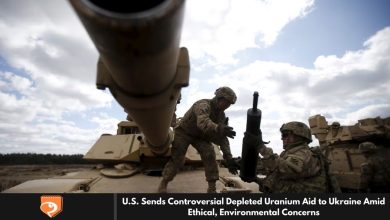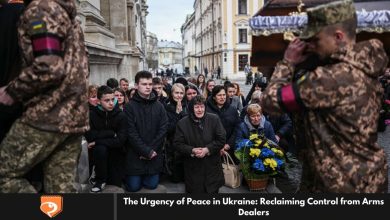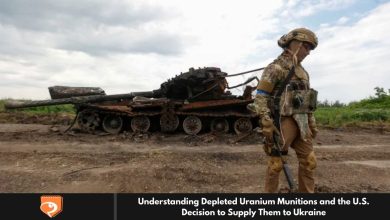Experiencing War from a Nursing Home: The Resilience of Elderly Residents in Ukraine
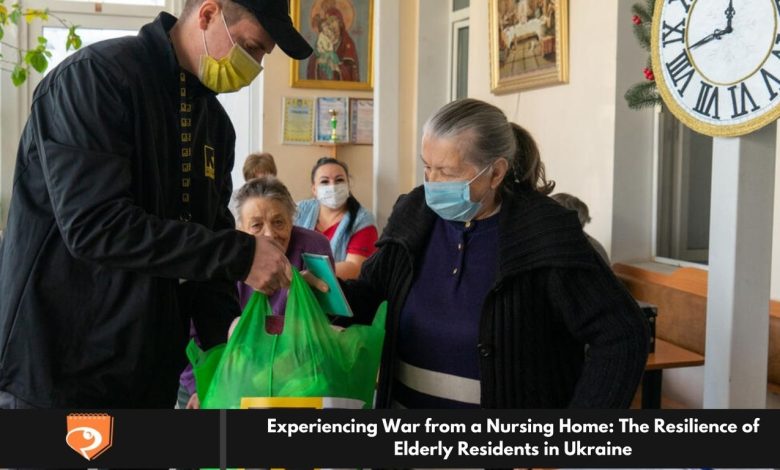
The ongoing war in Ukraine has left millions of lives in turmoil, with the elderly being some of the most vulnerable. Among them is Alla, an 84-year-old resident of a nursing home in Mykolaiv, who has experienced the harsh realities of living through war. Her story offers a glimpse into the resilience and strength of those enduring conflict in their later years.

As violence continues to impact Ukraine, the elderly face not only the physical dangers of war but also the emotional and mental strain of living through such an unprecedented crisis. For residents like Alla, the fear of bombings, limited access to basic needs, and the loss of loved ones are constant sources of stress.
Despite these challenges, Alla’s determination to stay positive and support others at the nursing home highlights the power of community and human connection in times of hardship. Her story is a testament to the strength of the elderly in the face of adversity and the importance of caring for this vulnerable population during times of conflict.
The Day the Nursing Home Was Attacked
In a moment that would forever change her life, Alla was standing in the corridor of her nursing home when the building came under attack. “It was awful for me, the fire, the rockets,” she remembers. “I was standing in the corridor and saw through the window how it was flying, how everything was burning.” This terrifying experience left her shaken but determined to keep moving forward. A missile struck the nursing home bathroom, but fortunately, no one was there at the time.
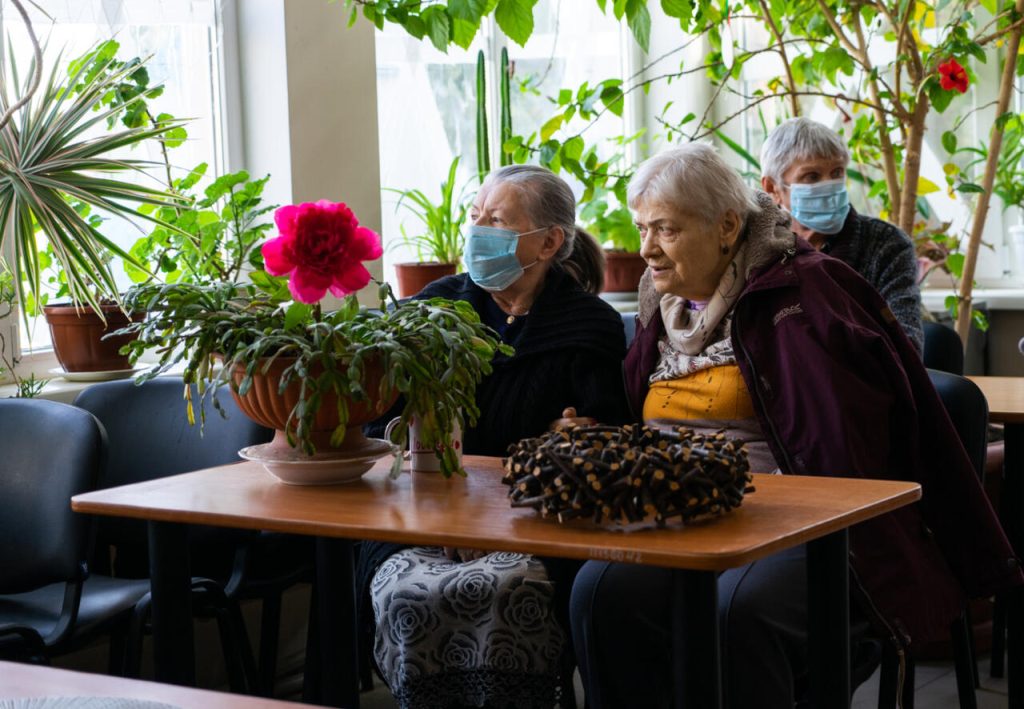
The attack was a stark reminder of the constant threat faced by the residents. The damage to infrastructure, homes, and buildings in Mykolaiv and throughout Ukraine has made everyday life a dangerous struggle. As bombs fall and buildings crumble, the elderly, like Alla, have become some of the most vulnerable members of society.
The Struggle for Basic Necessities in War-Torn Ukraine
In war-torn Ukraine, access to essential resources like clean water, food, and medicine has become increasingly difficult. Millions of civilians, including the elderly, are struggling to survive in these harsh conditions. The International Rescue Committee (IRC) is providing critical emergency assistance to those in need, including vulnerable populations like the elderly in nursing homes.
Two Wars, One Lifetime: Alla’s Experiences
Alla has lived through two wars: the Second World War and the current conflict in Ukraine. The memory of the liberation of Mykolaiv during the Second World War, when people threw flowers at returning soldiers, contrasts sharply with the devastating reality she faces today. “The current war has shocked and devastated me,” she says. “How many children have died… How many children were injured, and how many were left without parents? It’s scary, very scary.”

The personal toll of the war is heavy for Alla, who lost her son 21 years ago. As someone who has experienced deep loss, she empathizes with the grief many families are facing as they cope with the impact of the ongoing violence.
The Importance of Support: Nursing Home Staff and Community
Despite the trauma and hardships, Alla remains positive, largely thanks to the support she receives from the staff at her nursing home. She credits the caregivers, cooks, nurses, and the director of the home for creating a warm and supportive environment. “We have amazing people here,” Alla says. “Our director, our cooks, our nurses. They are very good; they have such a good attitude towards us.”
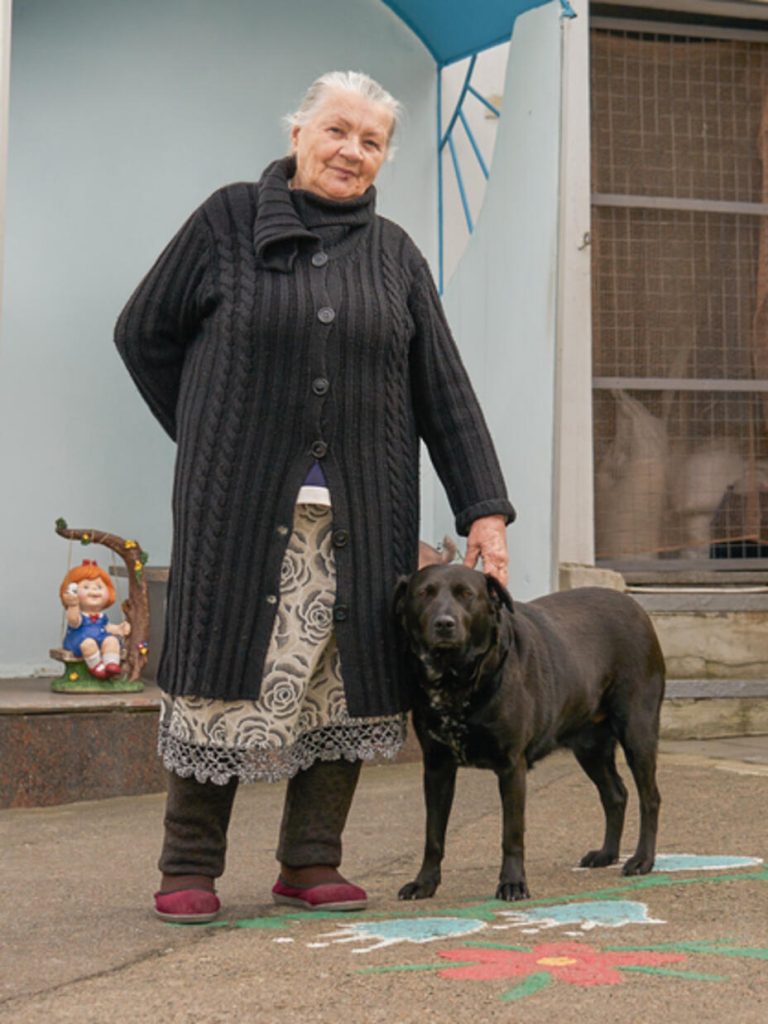
In a time when resources are scarce, and danger is ever-present, the nursing home staff’s dedication to the residents is a vital source of comfort and care. For the elderly, having a nurturing environment can make all the difference in their ability to cope with the stresses of war.
The Elderly in Ukraine: A Growing Crisis
Ukraine’s humanitarian crisis is especially hard on the elderly. Over 30% of people in need of humanitarian assistance are over the age of 60, making it one of the oldest humanitarian crises in the world. The challenges the elderly face in this war include not only physical health issues but also the emotional toll of witnessing widespread violence and suffering.
The EU, in partnership with organizations like the IRC, is working to ensure that elderly people in nursing homes and other care facilities receive the support they need. From distributing blankets and hygiene kits to addressing legal needs, these efforts are vital for helping seniors stay healthy and safe in the face of war.
Life in a Nursing Home: The Resilience of Elderly Ukrainians
Living in a nursing home doesn’t mean that Alla’s life is devoid of joy. Despite the war, she remains an active participant in the community. She enjoys spending time with her dog, Nika, attending concerts, reading, and solving crossword puzzles. “I have amazing people here,” she says. “I love animals and enjoy playing with my dog. I also love solving crossword puzzles.”
Alla’s participation in these activities helps maintain her mental and emotional well-being. It’s a reminder that even in the darkest times, maintaining a sense of normalcy and finding joy in small moments is crucial for resilience.
The Impact of War on the Elderly: Emotional and Mental Health Challenges
War can have devastating effects on mental health, particularly for the elderly. The trauma of witnessing violence, the loss of loved ones, and the constant fear of death can lead to feelings of depression, anxiety, and helplessness. For elderly residents like Alla, maintaining a positive outlook amidst these overwhelming circumstances is a daily challenge.
Despite these challenges, Alla’s attitude remains one of optimism. She believes that it is important to keep moving forward, even in the face of adversity. “We have to live. Don’t give up and support others,” she advises. “For example, the new woman who came here told me: ‘I have such a bad memory,’ and I replied: ‘No worries, me too!’ But when I think a lot, I recall things and words.”
Humanitarian Aid for the Elderly: How the IRC Is Helping
The IRC’s efforts to provide humanitarian aid to the elderly in Ukraine are crucial in ensuring their survival and well-being during the war. With funding from the EU, the IRC has provided nursing home residents with blankets, hygiene kits, and essential supplies. These efforts help alleviate the harsh conditions many elderly Ukrainians face daily.
Moreover, the IRC is also working to help nursing home residents address their legal needs, ensuring that their rights are protected as they endure the ravages of war.
The Importance of Community Support in Times of Crisis
For many elderly people in Ukraine, the nursing home has become not just a place of residence but also a place of refuge and community. The bonds formed between residents and caregivers offer emotional and physical support, which is vital for maintaining mental health during times of crisis.
Alla’s experience is a testament to the strength of community support. Despite being one of the oldest residents, she often helps take care of others at the nursing home. This sense of responsibility and connection to others is part of what helps her stay strong in the face of war.
The Role of Technology in Supporting Elderly Residents During Wartime
In today’s digital age, technology plays a crucial role in helping the elderly stay connected and informed, especially during times of war. For nursing home residents like Alla, having access to a television, radio, or even simple mobile devices allows them to stay updated on the latest developments. While some may struggle with the complexities of modern technology, others find solace in connecting with family members or participating in virtual activities. This connectivity helps to alleviate the loneliness and isolation that can come with living through such traumatic events, offering a sense of normalcy and reducing the emotional toll of war.
The Global Responsibility to Protect the Elderly in Conflict Zones
The war in Ukraine underscores the urgent need for the global community to prioritize the protection of the elderly in conflict zones. With over 30% of people requiring humanitarian aid being over the age of 60, the impact of war on this demographic is undeniable. International organizations, governments, and local communities must come together to provide targeted assistance, whether it’s through medical care, food distribution, or emotional support. The elderly, like Alla, often face the most significant vulnerabilities, and ensuring their safety and well-being should be a central focus in the global response to any humanitarian crisis.
Frequently Asked Questions
How has the war in Ukraine affected elderly residents in nursing homes?
The war has left elderly residents in nursing homes vulnerable to bombings, limited access to food, water, and medical care, as well as emotional distress. Many elderly people, like Alla, face constant fear and loss while relying on nursing home staff for care and support.
What role does the International Rescue Committee (IRC) play in helping elderly residents in Ukraine?
The IRC provides vital humanitarian assistance to the elderly in Ukraine, including distributing blankets and hygiene kits and helping residents address their legal needs. Their efforts ensured that elderly people had access to essential resources during the war.
How does Alla cope with the emotional toll of living through two wars?
Alla, like many elderly Ukrainians, relies on her inner strength, community support, and positive attitude to cope. She stays involved in nursing home activities, supports other residents, and draws on memories of resilience from her earlier life.
What kind of support do nursing homes in Ukraine offer to elderly residents during the war?
Nursing homes in Ukraine provide essential care, including shelter, food, and medical support. Many staff members go above and beyond to create a safe, nurturing environment to help residents cope with the fear and isolation caused by the ongoing conflict.
How do elderly residents maintain mental health while living in a war zone?
Residents like Alla find comfort in small daily routines, engaging in activities like reading, solving puzzles, and spending time with pets. The support of nursing home staff and fellow residents helps alleviate feelings of loneliness and anxiety.
What specific challenges do elderly people face in wartime Ukraine?
Elderly Ukrainians face numerous challenges, including limited access to healthcare, basic supplies, and social isolation. Many have already experienced the emotional trauma of losing loved ones or facing poverty, making the current war even more devastating.
How does the war impact the availability of basic needs for the elderly in Ukraine?
Due to widespread damage to infrastructure, many elderly Ukrainians struggle to access clean water, sufficient food, and essential medicines. The war has disrupted supply chains, making it even harder for vulnerable populations to meet their basic needs.
What is the role of technology in supporting elderly people during the war?
Technology helps elderly residents stay connected with family and the outside world, offering emotional support and vital information. Devices like phones, radios, and televisions allow residents to stay informed about the situation, reducing feelings of isolation.
How are international organizations ensuring elderly people in Ukraine receive aid?
International organizations like the EU and the IRC are working to provide targeted aid to elderly populations in Ukraine, including food, medical supplies, and shelter. These efforts help ensure that seniors have access to the support they need during the crisis.
What lessons can be learned from the experiences of elderly residents in Ukraine’s nursing homes?
The resilience, optimism, and sense of community exhibited by elderly residents in nursing homes like Alla’s serve as powerful reminders of the importance of supporting vulnerable populations during times of crisis. Their strength in the face of hardship underscores the need for comprehensive humanitarian assistance.
Conclusion
The experiences of Alla and others like her highlight the incredible resilience of the elderly in Ukraine’s ongoing war. Despite the immense challenges they face, their strength, optimism, and sense of community provide hope and inspiration for others. As the war continues, the international community must continue to provide aid and support to the elderly, who remain some of the most vulnerable in this conflict.
In these trying times, stories of survival, kindness, and compassion show that even in the darkest of circumstances, the human spirit can endure.

